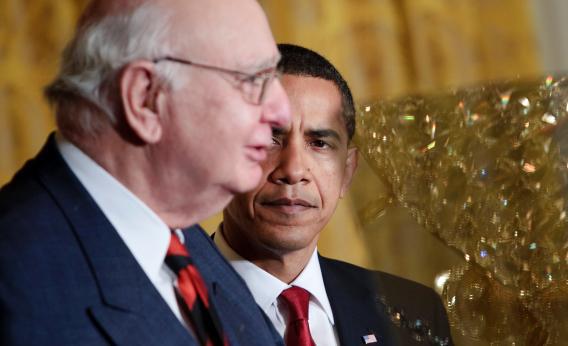You’re not supposed to talk about this sort of thing in polite society, but William Clark and Vincent Arel-Bundock have some new research out showing that historically the Fed is more “hawkish” on inflation when a Democrat is in office:
Why would the Fed act like a conditional inflation hawk? For reasons we explain in detail in the paper, the Fed expects policy, all else equal, to be closer to its most preferred policy when Republicans are in power. Consequently, it can afford to be an inflation hawk when Democrats are up for re-election, but faces a tension when Republicans face re-election. It can push for its preferred tight policy or it can take its foot off the brake in the hope that this will help prevent a Democratic victory – which would force the Fed to accept even less desirable outcomes in the future. Thus, when Republicans are up for re-election the Fed faces a choice – compromise now, or compromise later. The data suggests it is in the habit of compromising now.
Does it matter? A glimpse at the last 100 years is suggestive. During the first half of the twentieth century, Republicans controlled the White House less than half of the time. From the middle of the last century until the most recent financial crisis, the Republicans controlled the White House nearly two-thirds of the time. Standing between these two periods was a historic event: the 1951 Treasury-Fed Accord, which, by removing the Fed’s obligation to monetize Treasury debt, gave the Fed operational independence. This suggests that it may not be despite its independence that the Fed may be able to weigh in on electoral politics, but because of it.
Something to note here is that even though this plays as a dastardly accusation of malfeasance, it would be almost unthinkable for Fed officials not to keep this sort of thing in mind. It’s not as if the Fed is staffed by monetary economics monks who have no opinions on other policy matters. The team running the show in 1983-84 surely knew that Ronald Reagan was taking the country on a substantially different policy trajectory from where it had been in the 1960s and 1970s and that, therefore, his re-election campaign had major long-term consequences that had to be weighed against the fluctuations of mid-1980s macroeconomic policy. If the Federal Reserve had tried to cap inflation at 2 percent growth most likely would have been extremely slow during Reagan’s re-election campaign, Mondale might have won, and everyone would have decided that the conservative takeover of the Republican Party was a failed experiment. Instead, inflation was allowed to run much higher than it was in the ‘90s or aughts and Reagan won in a landslide.
If this history is still applicable on a forward-looking basis, we might expect looser monetary policy and a more robust recovery from a Romney administration.
